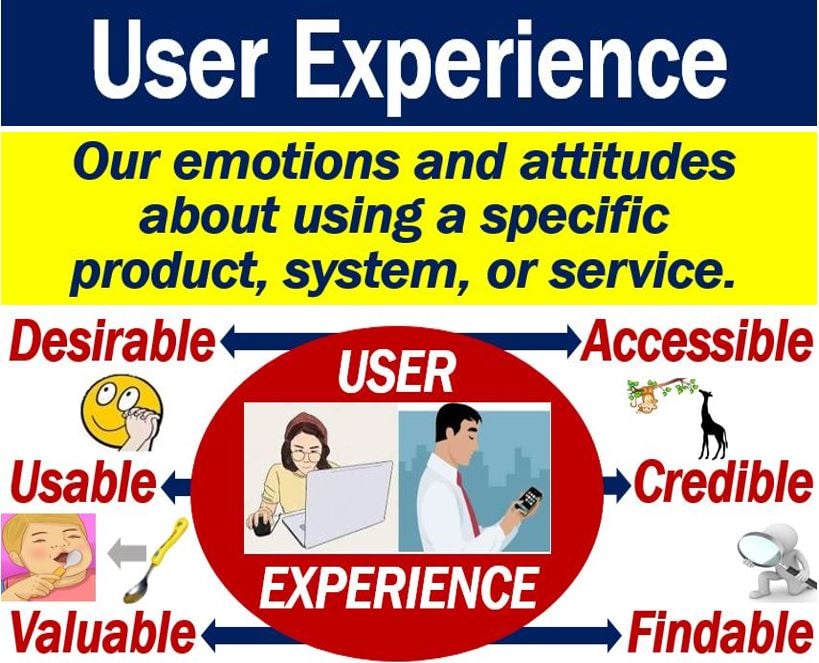What is user experience? Definition and examples
User experience or UX is a description of how much somebody enjoyed or disliked using something. It is the outcome of their interaction with a product or service. It also includes the factors that contributed to their overall perception of it. Your user experience is your overall experience of using a product, such as a computer application or a website. The term typically focuses on how pleasing or easy it was for you to use.
Our user experience is our perceptions and responses resulting from our use or anticipated use of a system, product, or service.
Put simply; it is how we feel about each interaction we have with what is in front of us. Specifically, what is in front of us when we are using it.
The International Organization for Standardization (ISO) has the following definition of the term:
“[A] person’s perceptions and responses resulting from the use and/or anticipated use of a product, system or service.”
“User experience includes all the users’ emotions, beliefs, preferences, perceptions, physical and psychological responses, behaviors and accomplishments that occur before, during and after use.”

User experience vs. usability
Usability
Usability refers to the degree to which something is effective. The degree to which it is easy to learn and easy to use, i.e., user friendly.
Usability also includes the degree to which something is efficient, has fewer errors, and satisfies the user.
When we talk about usability, we are looking at the functional part of something.
According to MockPlus.com, the four elements of usability are:
- Functionality: does the product function normally?
- Flexibility: apart from accomplishing its main task, can it do anything else?
- Industry Design: is it beautiful, i.e., do I like how it looks?
- Learnability: can I use it now, or do I have to undergo some extra learning?
User experience
This refers to users’ subjective feelings. It is all about users’ attitudes about using something.
The term includes the product brand, psychological expectation, functional scope, and actual emotional feeling.
The four elements of the user experience are:
- Desirability: Did I have fun when I used the product? Was it engaging?
- Usability: How easy was it to accomplish tasks?
- Value: Does this product provide me with value?
- Adaptability: Will this product catch on, i.e., will people start using it?
User experience – developer experience
The rapid growth in software engineering over the past few decades has made the term ‘user experience’ extremely popular.
Designers of user interface in software engineering, particularly for the web and smartphones, are forever concerned with user experience.
Now, a new expression has emerged; ‘developer experience‘ or DX. Software engineers use this term when talking about all the artifacts to be installed.
They also use the term ‘developer experience’ when talking about the methodologies they will use. Specifically, methodologies that let developers work efficiently and in comfort.
Video – user experience design
Why are some apps more enjoyable and easier to use than others? This d.studio@SAP video explains that there were probably very sophisticated and thoughtful design processes behind them.

